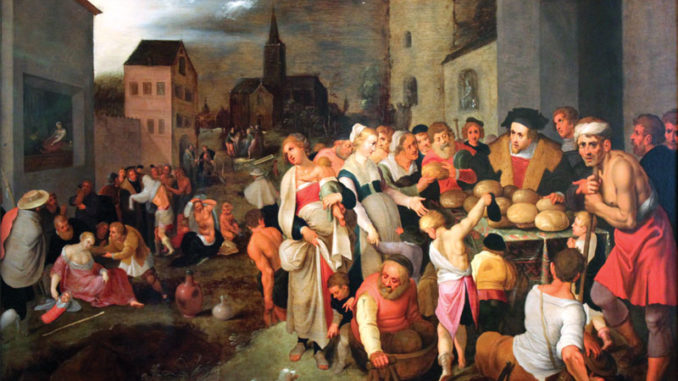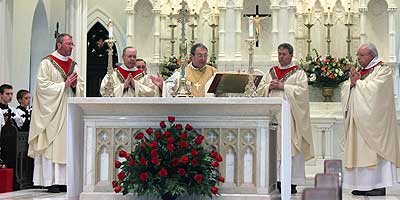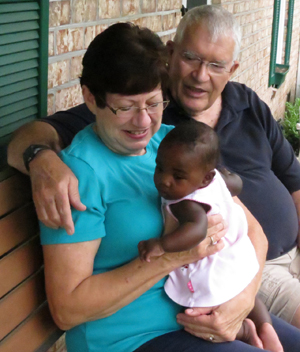
Dr. Seuss got it right. In “Horton Hears a Who” he tells the story of a Suessical elephant who has discovered minuscule human creatures living on what he calls a speck. Horton is committed to protecting the tribe of Whos and professes his faith in human dignity: “A person is a person no matter how small.”
This may seem like a trivial way to launch reflections on another month devoted to pro-life efforts around the state and in the nation’s capital, but it is encouraging to find that a long-time favorite author has found a subtle way of evangelizing youngsters on the value of human life. This month we have another anniversary of Roe vs. Wade. It is hard to grasp that in 2023 it will be 50 years since the Supreme Court of the U.S. legalized the extermination of young lives. The decision, based largely on property law, gave primacy to what has been deemed a woman’s “right to choose” the disposition (or disposal) of a fetus. Because of that, it has been almost impossible to dialogue on the topic. Catholics, many evangelicals, and persons of other faiths believe that the fundamental right, the real priority, is the human right to life itself, from conception to natural death.
One of the common accusations against us pro-lifers is that we are obsessed with getting babies born but fail to advocate for quality of life after birth. The discussions get mired in party politics, and if we are honest, we have to admit that it is nearly impossible to find a consistently pro-life politician. Being pro-life means defending human life against abortion and euthanasia. It also means finding ways to assure that human dignity is respected and nurtured at every age and stage. And it means having a faith-informed understanding of rights and freedoms.
When we look at papal, episcopal, and saintly writings of the past 50 and more years, what we find is that life issues are inter-woven. If one is pro-life, one has to be concerned that every child has access to food, clothing, shelter, medical care, and education. Every adult needs the same and also has a fundamental right to find meaningful work and to support a family. People are entitled to live in safe and peaceful communities. Thus we are rightfully appalled at acts of domestic violence, hate crimes, shootings in schools and places of worship and public facilities, and what seems to be an endless cycle of wars and uprisings. A consistent pro-lifer is opposed to the death penalty and supports criminal justice reforms and also seeks remedies for drug and alcohol addiction, human trafficking, and a host of other social ills. A person dedicated to human life and dignity is actively concerned about the health of civic society and the health of the planet.
St. John Paul II reminded us in his encyclical “The Splendor of Truth” that genuine human freedom is “free obedience to God’s law” — to the moral law and the natural law in which surviving and thriving are implicit. Our pro-life rallies, prayer vigils, and marches call attention to those in the womb who are human even if they are still the size of a pea. We are also challenged on a day to day basis to attend to the needs of all of those who might be living on a “speck” figuratively. It’s about being pro-life for a lifetime.




